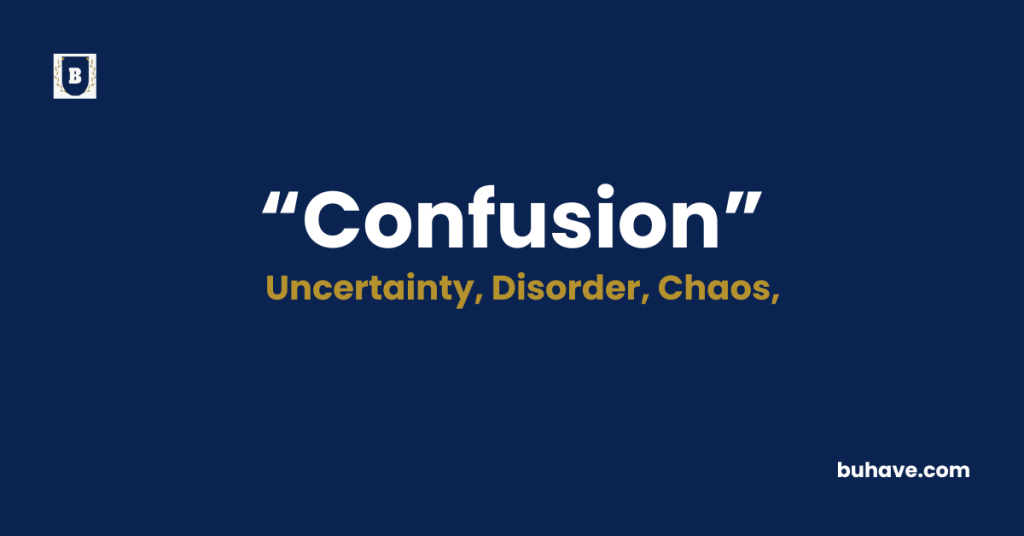The word ‘Confusion’ (Noun) refers to a state of being bewildered or unclear in one’s mind, or a situation where things are mixed up and disorderly. In this guide, you’ll learn the full meaning, definition, etymology, real-world examples, synonyms, antonyms, and commonly asked questions about how to use ‘Confusion’ correctly in sentences.
Confusion Explained in Depth
A complete and detailed guide to the word ‘Confusion’ including meaning, definition, examples, etymology, synonyms, and antonyms.
Meanings of Confusion
Confusion means a lack of clarity, order, or understanding—either in someone’s thoughts or in a surrounding situation. It can describe mental fog, misinterpretation, or general disarray.
Definition
Confusion is defined as a state of uncertainty or lack of clarity, often involving difficulty understanding or distinguishing things, people, or concepts.
Etymology
“Confusion” comes from the Latin word confusio, meaning “a mingling or mixing together.” It is based on the verb confundere, from con- (together) and fundere (to pour). The word entered English in the late Middle Ages.
Example Sentences
- Her explanation only added to my confusion about the rules.
- There was mass confusion at the airport after several flights were delayed.
- He looked at the puzzle with complete confusion, unable to make sense of it.
Confusion Synonyms
- Bewilderment
- Perplexity
- Disorder
- Turbulence
- Uncertainty
- Disarray
- Disorientation
- Muddle
- Chaos
- Misunderstanding
Confusion Antonyms
- Clarity
- Understanding
- Order
- Certainty
- Comprehension
- Organization
- Insight
- Precision
- Focus
- Awareness
FAQs about Confusion
Here are some frequently asked questions (FAQs) about the word “Confusion”
-
What does “confusion” actually mean?
“Confusion” refers to a lack of understanding or mental clarity, or a messy or disordered situation.
-
Is confusion a normal feeling?
Yes, everyone feels confused at times, especially when faced with new or complicated information.
-
Can confusion be a symptom of a health condition?
It can be. Confusion might indicate fatigue, stress, dehydration, or even medical issues like dementia or a concussion.
-
What’s the difference between confusion and forgetfulness?
Confusion is not understanding something clearly, while forgetfulness means being unable to recall information.
-
How can I overcome confusion?
You can reduce confusion by asking questions, organizing your thoughts, getting rest, or seeking help to clarify complex topics.

















